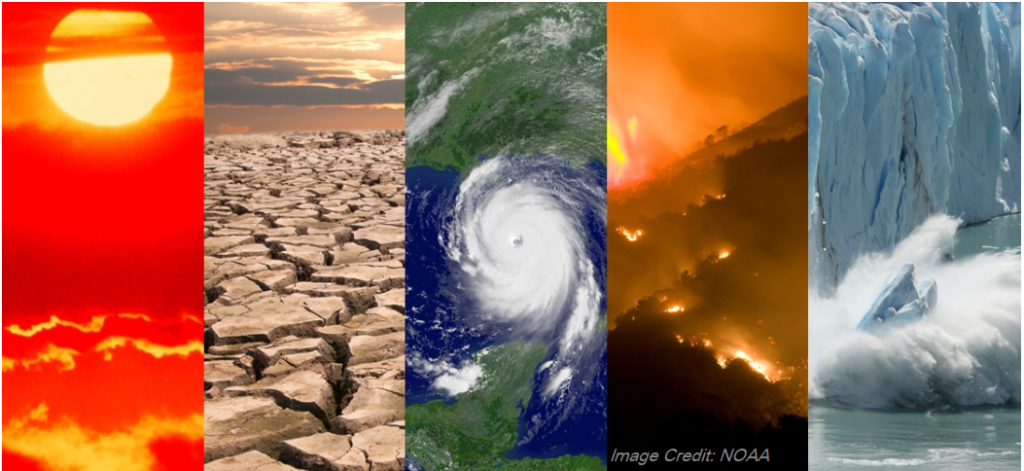For the last 6 years, the Lancet medical journal has published the Lancet Countdown report on health and climate. This year’s report is out, and has a section specifically for the U.S. The report details climate-related events happening in the U.S. that affect our health, and recommends policy solutions.
This year, the report lists drought, wildfires, and extreme heat as the most intense health threats affecting much of the U.S. It recommends we plan for the health problems caused by a changing climate, incorporate health costs of fossil fuels into the social cost of carbon, that we rapidly reduce greenhouse gas emissions to 57-63% of 2005 levels by 2030 and to near-zero emissions by 2050, and that we direct 40% of investments towards improving air quality in under-resourced communities.
There is a massive, intense drought in the West, affecting all states west of Texas. This affects us in the Southeast because much of our food is grown in California and Arizona and other states in the west. Droughts cause food insecurity, water contamination, job loss, and cultural threats.
The wildfires out west have been intense too, and air pollution from them reached as far east as Maine, and caused quite a few weeks in the Southeast when particulate matter (PM) was 65-75 for days, and rain didn’t wash it out of the air like it usually does. Wildfires not only make PM, they also create NO2 and VOCs which are a precursor for ozone and also a direct threat to health health.
In addition, the report states that more than a third of urban heat-related deaths from 1990s and 2000s can be attributed to climate change. This year, there was a searing heatwave in the west that affected states from Arizona to Washington. It caused a 70 fold increase in ER visits and an estimated 600 deaths in just one week. Additionally, among the two most at-risk groups for excessive heat, those over 65 and infants, there were an estimated 300 million more days of heatwave exposure in people over 65 and 22 million more days in infants. The Southeast also experienced excessive heat, not so much as heatwaves but as prolonged periods of higher heat, which also affects health. And remember, because of our past racist practices of redlining, heatwaves are even more intense in black communities because of the differences in hard surfaces suchs as roads and buildings, and the lack of trees. Portland OR is the number one city in the U.S. with the biggest heat disparity with an average 7F degree difference between neighborhoods, and it experienced temperatures of 116F this summer, seriously exacerbating health disparities due to environmental racism.
In addition to describing health problems, the report lists proposed policy solutions: adapation specific to local areas (buildings and bridges, flood control, and air conditioning), including the health costs of climate in the social cost of carbon, and most importantly that we rapidly reduce our greenhouse gas emissions by 2030 and reach near-zero emissions by 2050 (note this is near-zero emissions, not net-zero emissions). Our response to Covid shows we can take urgent and immediate action for emergencies. Climate is just as much of an emergency as Covid, and we need to do the same.
Read the Lancet Countdown 2021 U.S. here.
10/22/2021





